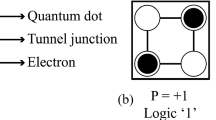Abstract
Testing becomes an inevitable part of the VLSI circuit. All the circuits or products must be verified before delivery. The data collected during testing is used to remove the faulty parts from the products and help to enhance the design and manufacturing process and improve the returns as well. There are several contributions made by researchers which are majorly based on Linear Feedback Shift Register (LFSR), bit swapping LFSR and dual threshold bit swapping LFSR methods. Reduction of delay, power consumptions and fault coverage are considered as major factors from the above methods. The proposed approach uses Bit Swapping-Linear Feedback Shift Register (BS-LFSR) architecture which integrates pre-charge, set-reset and gate replacement with mux techniques have alleviated the inherent drawbacks of linear feedback shift register and produced better results. Pre-charge method is reducing the delay and power consumption there by maximizing the operating frequency angle with high performance. High fault coverage is achieved through set and reset technique. Multiplexers mainly employed to minimize the delay and power consumption. BS-LFSR pattern generators are used to decrease the transition power from high switching action. These are producing an arbitrary test sequences with less power of switching by determining the pretense space between two subsequent designs. The area is reduced with the help of combinational logic. Experimental evaluation is done using ISCAS89 benchmark datasets. From the results, it is inferred that the fault coverage is increased and power consumptions are reduced.










Similar content being viewed by others
Change history
04 July 2022
This article has been retracted. Please see the Retraction Notice for more detail: https://doi.org/10.1007/s12652-022-04296-9
References
Abdallatif SA, Steven FQ (2009) Bit-swapping LFSR and scan-chain ordering: a novel technique for peak- and average-power reduction in scan-based BIST. IEEE Trans Comput-Aided Design Integr Circuits Syst 28:755–759
Abdulhay E, Elamaran V, Arunkumar N (2018) Fault-tolerant medical imaging system with quintuple modular redundancy (QMR) configurations. J Ambient Intell Human Comput 10:1–3
Abu-Issa S, Quigley SF (2008) Bit-swapping LFSR for low-power BIST. IET J Mag Electron Lett 44:401–402
Acevedo O, Kagaris D (2016) On the computation of LFSR characteristics polynomials for built in deterministic test pattern generation. IEEE J Mag 65:664–669
Baloji N (2011) Peak-and average power reduction in check-based BIST by using BS LFSR and check-chain-ordering. IOSR J Comput Eng 4:36–42
Banupriya C, Chandrakala S (2014) A low power built in repair analyzer for word oriented memories with optimal repair rate. International conference on green computing communication and electrical engineering (ICGCCEE), pp 1–5
Devi PG, Abinaya P, Poornimasre J (2014) Non-intrusive bit swapping pattern generator for BIST testing of LUTs. International conference on information communication and embedded systems, pp 1–4
Dhanesh P, Jayanth BA (2015) Dual threshold bit-swapping LFSR for power reduction in BIST. International conference on advanced computing and communication systems, pp 1–3
Jen-cheng Y-W, Tseng W-Y (2017) Asymmetric dual-LFSR resending for low power BIST. IEEE Integr VLSI J 60:272–276
Karthik B, Mark Z (2008) Divided backend duplication methodology for balanced dual rail routing, International workshop on cryptographic hardware and embedded systems CHES 2008: Cryptographic Hardware and Embedded Systems—CHES 2008 pp 396–410. (Part of the lecture notes in computer science book series (LNCS, volume 5154)
Neophytou SN, Michael MK (2010) Test set generation with a large number of unspecific bits using static and dynamic techniques. IEEE J Mag 59:301–316
Potteti S, Goura RK (2016) Secured data in cloud by using LFSR. IEEE J Eng Comput Sci 4:15049–15054
Reddy RS, Sumalatha VA (2013) New built in self-test pattern generator for low power dissipation and high fault coverage. IEEE Recent Adv Intell Comput Syst (RAICS) 2013:19–25
Sabir H, Malleshwara RV (2016) An SIC-BS linear feedback shift register for low power BIST. ieee conference on devices for integrated circuit (DevIC), pp 606–610
Sathyanathan AA (2012) VLSI implementation of LFSR for test pattern with BIST technique. IEEE J Mag 3:251–253
Su Y, Shen J, Zhang M (2019) A high Security and efficiency protection of confidentiality and integrity for off-chip memory. J Ambient Intell Human Comput 10:2633–2643
Tan G-M, Zeng G, Han W-B, Liu X-H (2012) Construction and enumeration of a class of primitives-LFSR sequences. IEEE J Softw 23:952–961
Thirunavukkarasu V, Saravanan R, Saminadan V (2016) Performance of low power BIST architecture for UART. International conference on communication and signal processing (ICCSP), pp 2290–2293
Tomy R, Vinoj PG (2015) Research on mixed encryption of DES and LFSR and FPGA implementation. IEEE J Comput Sci Appl 5:125–132
Vignesh M, Jayaseelan J (2015) Transition faults test pattern generation for minimizing power using BS-LFSR and LOC. International conference on circuits power and computing technologies, pp 1–6
Author information
Authors and Affiliations
Corresponding author
Additional information
Publisher's Note
Springer Nature remains neutral with regard to jurisdictional claims in published maps and institutional affiliations.
This article has been retracted. Please see the retraction notice for more detail:https://doi.org/10.1007/s12652-022-04296-9
About this article
Cite this article
Murugan, S.V., Sathiyabhama, B. RETRACTED ARTICLE: Bit-swapping linear feedback shift register (LFSR) for power reduction using pre-charged XOR with multiplexer technique in built in self-test. J Ambient Intell Human Comput 12, 6367–6373 (2021). https://doi.org/10.1007/s12652-020-02222-5
Received:
Accepted:
Published:
Issue Date:
DOI: https://doi.org/10.1007/s12652-020-02222-5




